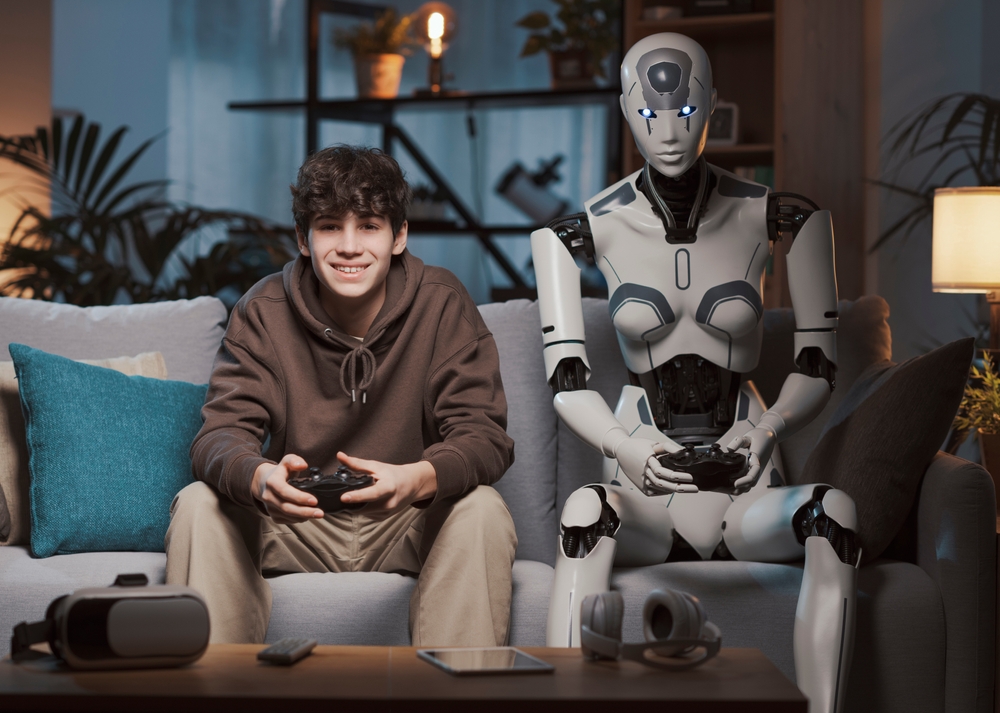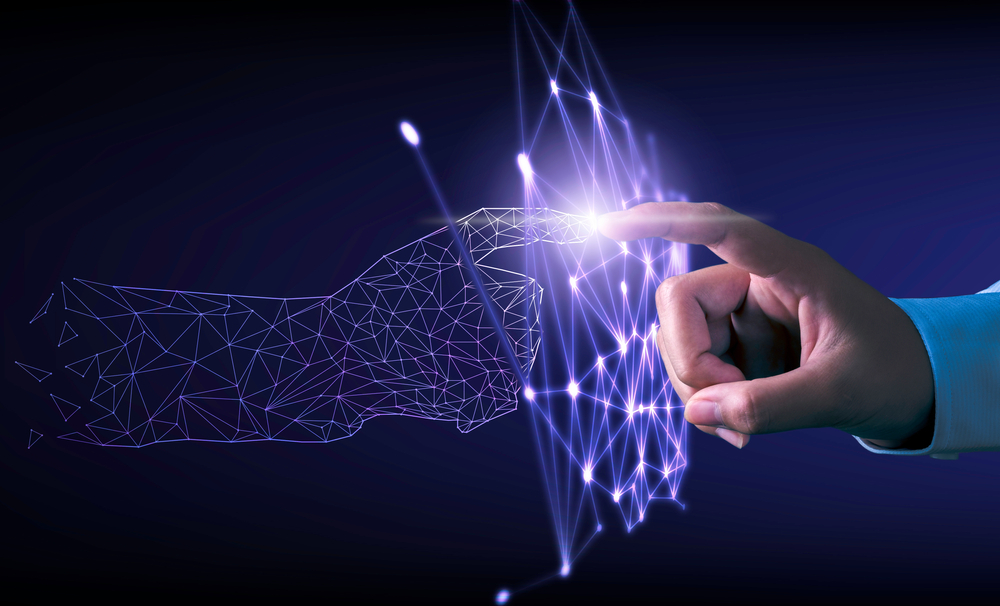
AI in Gaming & Esports: How Artificial Intelligence is Changing the Game
AI – The Ultimate Player, Coach, and Developer
Gaming has always been about creativity, strategy, and skill. But with the rise of Artificial Intelligence (AI), the way games are developed, played, and even competed in has changed dramatically.
From smart NPCs and adaptive difficulty levels to AI-driven coaching tools for esports players, AI is revolutionizing gaming. Today, AI is not just an opponent — it’s also a developer, an analyst, and a virtual coach helping players improve.
But with this transformation comes a set of challenges: Will AI-driven game mechanics remove the thrill of unpredictability? Could AI eventually surpass human esports players? Will AI-generated content replace human creativity in game design?
Let’s dive into the world of AI in gaming and esports, exploring real-world applications, successes, and challenges that are shaping the future of interactive entertainment.
-
AI in Game Development: Smarter, Faster, and More Creative
Creating a video game is a massive task, requiring thousands of hours of coding, designing, and testing. AI is helping game developers speed up this process and even generate game content autonomously.
Case Study: Ubisoft’s Ghostwriter – AI Writing NPC Dialogues
Ubisoft, one of the biggest game developers in the world, created Ghostwriter, an AI tool that automates NPC (non-playable character) dialogue writing. Instead of manually writing hundreds of lines of background conversations, AI helps generate realistic dialogue, which developers can refine.
Successes:
- AI reduces the time and effort required for writing dialogue.
- Developers can focus on more creative aspects of storytelling.
Challenges:
- AI-generated dialogue may feel repetitive or lacking in emotional depth.
- Game writers still need to review and fine-tune AI-written content.
-
AI in NPC Behavior: Making Virtual Opponents Smarter
AI has been used in gaming since the earliest days of Pac-Man and chess simulations. Today, AI-powered NPCs (non-playable characters) can adapt to player strategies, learn from past gameplay, and provide a more realistic challenge.
Case Study: OpenAI’s Dota 2 Bot – Beating Professional Gamers
In 2018, OpenAI Five, an AI trained to play Dota 2, faced off against professional esports players. The AI learned from millions of games, analyzed strategies in real time, and eventually defeated some of the best human players in the world.
Successes:
- The AI demonstrated rapid learning capabilities, adapting faster than human players.
- Pro players even learned new strategies from AI gameplay.
Challenges:
- AI in competitive games can become too dominant, potentially making games less enjoyable for casual players.
- Unpredictability and improvisation — a key element of esports — might be lost if AI players become too perfect.
-
AI in Procedural Content Generation: Infinite Worlds, Unique Experiences
AI is revolutionizing game world creation, allowing developers to build vast, dynamic environments with minimal manual effort.
Case Study: No Man’s Sky – AI-Generated Universe
The game No Man’s Sky used AI-powered procedural generation to create an entire universe with:
- 18 quintillion unique planets, each with distinct environments.
- Flora, fauna, and weather systems generated on the fly.
Successes:
- AI enables endless exploration and unique player experiences.
- Reduces the need for handcrafting every game element.
Challenges:
- Procedural generation can sometimes result in repetitive or empty-feeling worlds.
- AI can create beautiful landscapes, but human creativity is still needed for deep storytelling.
-
AI in Adaptive Difficulty & Personalized Gaming
AI-driven difficulty adjustment ensures games remain challenging but not frustrating.
Case Study: Alien: Isolation’s AI-Driven Xenomorph
The game Alien: Isolation featured one of the most advanced AI enemies in gaming history — the Xenomorph. Unlike traditional NPCs, which follow pre-programmed patterns, this AI:
- Learns from player behavior, tracking hiding spots and attack patterns.
- Changes its strategy, ensuring that no two encounters feel the same.
Successes:
- AI creates a truly terrifying, unpredictable experience.
- Players remain constantly engaged as the AI adjusts in real time.
Challenges:
- If not properly balanced, AI can make games too hard or too easy.
- Players may feel cheated if the AI becomes too powerful or unfair.
-
AI in Esports Coaching & Training
AI isn’t just playing games — it’s also helping human players get better. AI-driven analytics tools provide real-time feedback, strategy suggestions, and personalized training for esports professionals.
Case Study: SenpAI.GG – AI Coach for League of Legends & Valorant
SenpAI.GG is an AI-powered esports coaching tool that:
- Analyzes player performance in real time.
- Suggests better strategies and builds based on past matches.
- Provides in-depth reports to help players improve their skills.
Successes:
- AI has helped amateur players improve their ranking faster.
- Pro teams use AI-driven analytics for match preparation.
Challenges:
- AI coaching relies on past data — it may struggle with unpredictable playstyles.
- Some players may feel AI removes creativity and spontaneity from gaming.
-
AI in Game Testing: Catching Bugs Before Launch
Game testing is time-consuming and expensive. AI is now being used to automate testing, identifying bugs and glitches faster than human testers.
Case Study: EA’s AI-Driven Bug Detection System
Electronic Arts (EA) uses AI to:
- Simulate thousands of playthroughs to detect bugs.
- Identify game balance issues before public release.
- Reduce QA testing time, allowing faster game development.
Successes:
- AI catches bugs early, reducing launch-day issues.
- Saves game developers millions in testing costs.
Challenges:
- AI can miss nuanced or experience-related bugs that only human players notice.
Challenges of AI in Gaming & Esports
- Loss of Human Creativity – Can AI truly replace human-driven storytelling, humor, and artistry in gaming?
- AI Bias & Unfair Play – AI-driven matchmaking and difficulty systems may favor certain player behaviors, leading to imbalanced gaming experiences.
- Ethical Concerns in Esports – Should AI-assisted players be allowed in esports tournaments? Could AI create unbeatable "super players"?
- Over-Automation – Some players feel that AI-driven automation removes the thrill and challenge of mastering a game.
The Future of AI in Gaming & Esports
Fully AI-Generated Games – Future games could be entirely created by AI, including storylines, characters, and environments.
AI-Powered NPCs with Human-Level Intelligence – Imagine NPCs that remember your past interactions, adapt to your decisions, and evolve over time.
AI vs. Human Esports Matches – Will AI eventually dominate competitive gaming, or will human creativity always prevail?
Personalized AI Storytelling – Games that adjust narratives dynamically based on player choices and emotions.
Final Thoughts
AI is changing the way we play, develop, and experience video games. It is making games more immersive, dynamic, and personalized while revolutionizing esports coaching and competition.
However, gaming is about creativity, unpredictability, and human emotion — elements that AI has yet to fully master. The best future for gaming will likely be a hybrid approach, where AI enhances gameplay but doesn’t replace human ingenuity.
Would you compete against an AI player? Or do you prefer gaming experiences crafted by humans?








